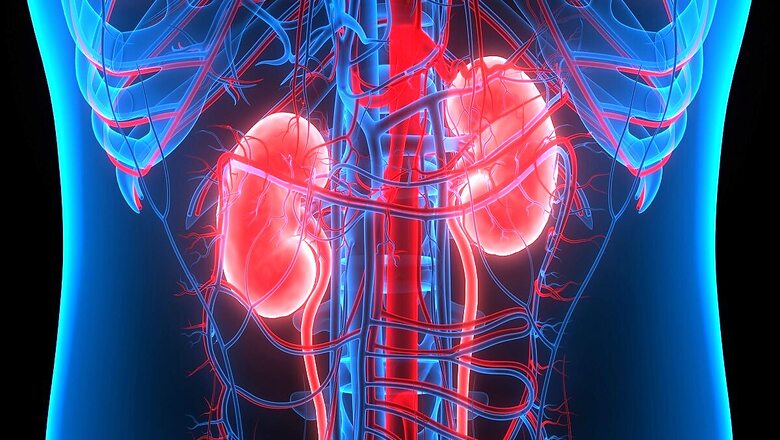
views
Organised human organ racketeers have been increasingly targetting the economically vulnerable across Assam preying on their desperation. Tea tribe community members are the latest target as a victim from the Dibrugarh district revealed how he was manipulated into selling his kidney.
Forty-five-year-old Ramu Karmakar of Singlijan tea estate in Dibrugarh said he sold his kidney to an ‘agent’ for an amount of Rs 3.5 lakh in April. He was approached by one Jibeswar Deka, who first offered to pay Rs 2 lakh in case he donates his kidney to ‘someone needy’. Later he raised the amount to Rs 3.5 lakh and Ramu said he couldn’t refuse the amount. “I needed the money. I have three children and my financial condition was not good. I was in dire need and couldn’t refuse the money,” he said.
He spent a couple of months in Kolkata before undergoing the surgery. The alleged broker is absconding and investigation is due. Reportedly, two other tea tribe people from the same tea estate and another person from a different tea garden have fallen for the same racket.
During the past couple of days, kidney racket victims in different places of Assam are telling the untold truth about a market that thrives on the illegal trade of human organs.
Exposing the loopholes in the implementation of existing organ donation laws, cases of kidney racket victims first came to light from Dakshin Dharamtul village of the Morigaon district, about 85 km east of Guwahati. A complaint was raised by a villager who said he was duped by one mother-son due and was only paid ₹50,000 instead of the promised ₹6 lakh after he underwent an operation in June while donating his kidney.
Based on the allegation, the police first arrested mother-son duo Lilimai Boro and Mintu Boro on July 11. Later another broker Ramen Medhi was also arrested.
Another accused Plabon Barthakur alias Nantu Barthakur is still absconding. Reportedly all victims were operated on at the Rabindranath Tagore International Institute of Cardiac Sciences in Kolkata, which has rubbished allegations of unethical medical practices.
“We are among India’s most ethical healthcare organizations, and we will always abide by the laws of the land. Our kidney transplant program is one of the largest transplant centres in East India. We conduct thorough legal and medical due diligence on every transplant case coming to our hospitals. All documentation that is required by law is provided by the patients and respective state governments. Additionally, we procure affidavits sworn before a 1st class judicial magistrate stating that donors are bonafide. Finally, we wait for NOC’s from the West Bengal and Assam state organ transplant authorization committees before we conduct any transplant,” the hospital said in a statement.
According to the police, at least 10 other people from Dakshin Dharamtul village sold off their kidneys to brokers working for kidney racket. A few went on record saying they were promised ₹4-5 lakhs if they go to Kolkata for kidney donation. These ‘kidney donors’ later felt betrayed as they were not given the amount promised and received amounts varying from Rs 1.5 lakh to Rs 3lakh from the middlemen. All these victims are either financially cornered by lockdown or microfinance debts.
Similar cases were spotted in the Nagaon district. At least 7people from economically backward Hujgaon village donated their kidneys in Kolkata and as reported three other people are in Kolkata awaiting surgery. Most of the ‘donors’ refused to accept that they are ‘selling kidneys’ and claimed they donated with consent. But contradictory versions are exposing the obvious lie and allegations of racketeers targeting poor families confirmed by one woman donor who accepted that she received Rs 5 lakh for donating her kidney. A couple of arrests are awaited as enraged localities’ has named a few and demand police to bust the entire illegal gang.
All the victims were compelled to sell off their kidneys to pay outstanding debts or different family obligations. Many victims said they were compelled to sell a kidney to repay the microfinance loans as they have exhausted all options of repayment after selling their movable and immovable assets.
While The ‘Transplantation of Human Organs Act-1994’, amended in 2011, prohibits buying or selling of human organs and provides for fines and imprisonment as punishment measures and violation attracts imprisonment of five years which may extend to ten years and shall be liable to fine which shall not be less than Rs 20 lakh and may extend to Rs 1 crore. These legal provisions fail to act as deterrence against kidney or organ racketeers lurking among financially downtrodden people and brainwashing them.
‘The Transplantation of Human Organs and Tissues Rules, 2014’ makes it mandatory that when the proposed donor and the recipient are not “near relatives”, as defined in the Act, the ‘Authorization Committee’ shall evaluate that there is no commercial transaction between the recipient and the donor and that no payment has been made to the donor or promised to be made to the donor or any other person. The victims of the kidney racket in Morigaon alleged that they were groomed by middlemen to impersonate as near relatives of kidney recipients raise the question as to why the Authorization Committee failed to detect the forgeries despite the prevailing elaborate rules.
The Assam government has ordered a high-level probe in this matter.
Read all the Latest News, Breaking News and Coronavirus News here.













Comments
0 comment